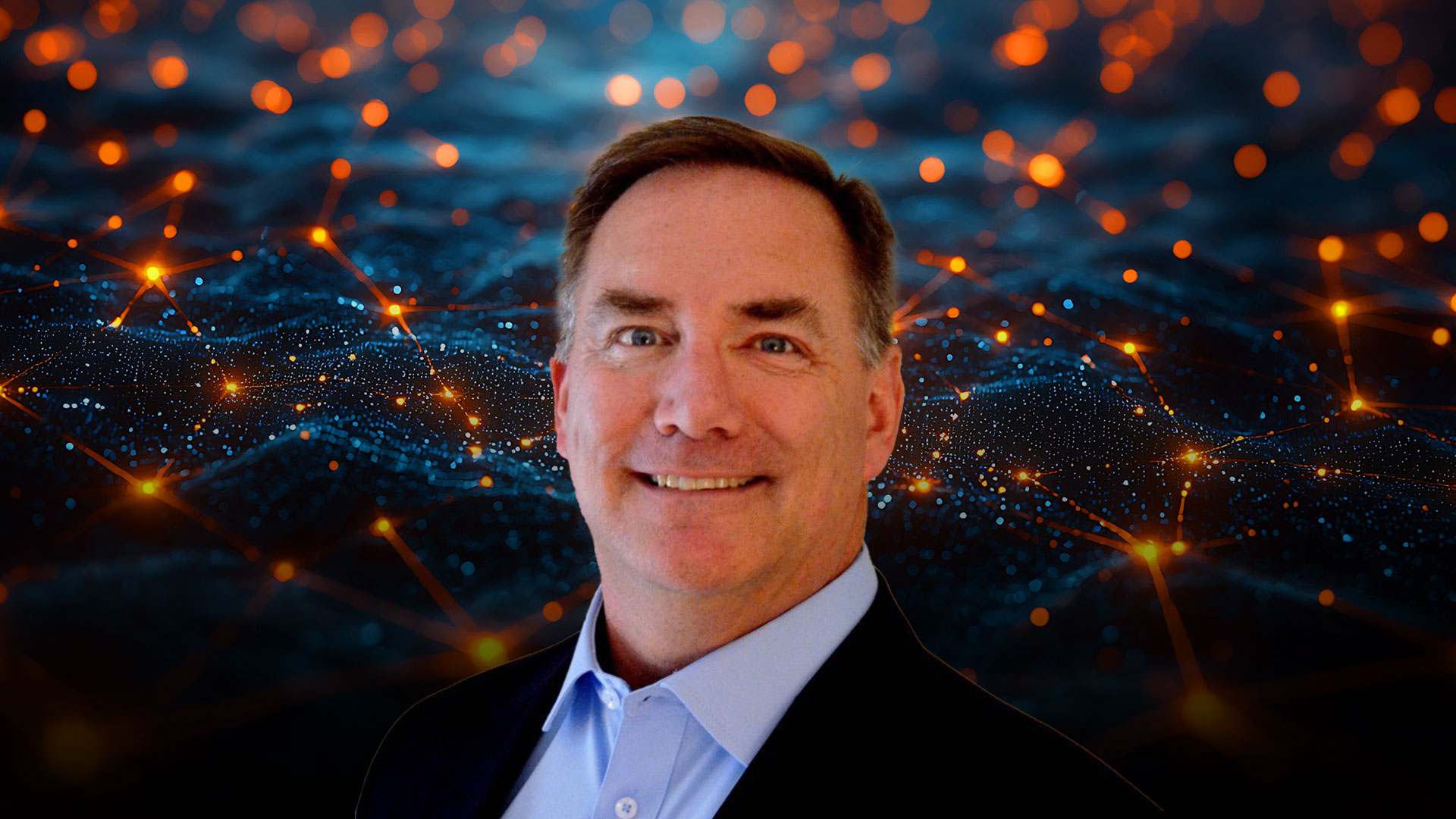
Lessons from Supply Chain Front Lines: A Sit Down with Matt Douglas

Few supply chain leaders, like Matt Douglas, have experienced the intensity of true frontline logistics. From orchestrating ammunition deliveries in the deserts of Iraq during Operation Desert Storm to resolving billion-dollar backlogs for global electronics companies, Matt's career is a masterclass in turning chaos into clarity.
I recently sat down with Matt, who we're honored to have on the ketteQ's Executive Advisory Board, for a wide-ranging conversation about what's broken in supply chain, the rise of AI-driven planning, and why companies need to think beyond spreadsheets and beyond "supply chain" itself.
Q: Matt, let's start with your background. How did your journey in supply chain begin?
A: I started my supply chain career in the U.S. Army as an ammunition logistics officer supporting deployments in Panama, Saudi Arabia, and Iraq during Desert Storm. That experience taught me the importance of planning under pressure and adapting to change.
After the military, I earned my MBA and joined Adtran as their first logistics manager. From there, I moved into consulting with Deloitte and Capgemini, helped launch and scale a Lucent spinout, and held executive roles at Avaya, Netgear, and Crestron. I've led new product introductions, global transformations, and massive recovery efforts, including clearing a billion dollars in backlog at Crestron in under a year.

Q: In your view, what's the biggest challenge supply chains face right now?
A: Tariff volatility. One week it's 145% tariffs from China, the next it's 30%—but only for 90 days. You can't manage that kind of chaos with spreadsheets. You need good data and a modern supply chain planning platform like ketteQ to simulate real-time options. Otherwise, you're flying blind.
Q: What's fundamentally broken in the supply chain?
A: Two things. First is the perception that the supply chain is a secondary, back-office function. That's improving post-COVID, but not fast enough. Second, data quality. Most companies don't have reliable, cross-functional data. Netgear was an exception, and not surprisingly, it had one of the strongest supply chains we've seen.
Q: How has the disruption era changed the planning playbook?
A: The game has changed. It's no longer just about cost; it's about resiliency. We used to prioritize the cheapest supply source. Now, supply chain leaders are building in flexibility, dual sourcing, and risk mitigation, even if it costs more.
Boards and C-suites are paying attention. The complexity is finally being acknowledged, and tools like AI, especially when they can simulate multiple scenarios like ketteQ's, are reshaping how we plan.
Q: Is the CFO paying more attention to the supply chain now?
A: Without a doubt. At Netgear, Mini Circuits, and Crestron, I had weekly, even daily, interactions with the CFO. Supply chain is typically the second-largest cost structure after labor, so it's become a key focus area. Netgear's S&OP process included the CFO, COO, and business unit president every month. That level of executive involvement has become essential.
What's changed is that CFOs no longer see supply chain just as a cost center; they're starting to view it as a profit lever. They understand that better planning means better service levels, more accurate promise dates, fewer lost sales, and less excess inventory. In margin-constrained environments, those are massive value drivers. And the best CFOs are leaning in and asking questions, running scenarios, and partnering with supply chain leaders to make smarter, faster decisions.
Q: Which technologies are you most excited about?
A: AI. For 30 years, I've believed that the supply chain is all about information flow and how fast and accurately it travels. AI gives us the power to analyze that flow at scale.
During COVID, we had to scale a product line from 20,000 to 350,000 units in six months. It took daily calls, spreadsheets, and lots of manual effort. With advanced technology like ketteQ's PolymatiQ™ agentic AI-powered solver engine, we would've made faster, better-informed decisions, and likely hit our targets even sooner.

Q: What impresses you most about ketteQ?
A: Customer satisfaction. That's the true north. ketteQ gets it right because the team comprises supply chain veterans, not just technologists. They've lived the pain, so they've built a solution that solves today's real-world challenges, not the problems of yesteryear's supply chain.
I was also drawn to their architecture. They're built on Salesforce, which makes so much sense. You need demand data at the center of any effective planning solution. ketteQ is the first one I saw that I understood deeply.
Q: What will separate tomorrow's best supply chains?
A: Two things: data discipline and people. Companies with clean, reliable, and connected data will be better positioned to use advanced tools like AI. And the companies that thoughtfully integrate AI with human judgment, not as a replacement, will outperform.
Planners of the future won't just crunch spreadsheets. They'll run simulations, test scenarios, and guide strategy. But that only works if you have the right people and technology.
Q: How important is speed in implementation?
A: Very. But don't try to transform the entire company overnight. Start with a single product line, clean the data, and implement the planning solution. Learn from it. Once it works, and it will, you can scale quickly.
With solutions like ketteQ, you're not waiting on rigid month-long cycles. You can plan continuously and respond in real time. That's the kind of agility companies need now.
Q: How can companies move from reactive to adaptive planning?
A: Start small. Pick a part of your business, get a few open-minded team members, and pilot a next-generation, adaptive AI-powered solution. You'll want to expand once you see how much faster and more accurate planning becomes.
It's human nature to resist change, especially if you're used to spreadsheets and static processes. But there's no going back once you experience what's possible with adaptive planning.
Q: What advice would you give your younger self?
A: Don't ever assume something is impossible. Thirty years ago, I understood that faster, more accurate information flow was the key to outstanding supply chain performance. That's still true.
Always be thinking about how to make things better. Continuous improvement isn't just a leadership mantra; it's a mindset. Live it every day.

Q: What excites you most about the ketteQ journey?
A: I believe ketteQ defines the next paradigm in supply chain planning. This is not just for supply chains but also for overall business planning.
We often talk about "supply chain planning," but it starts with understanding demand—that's business planning. And ketteQ is building the tools to make that process faster, more intelligent, and more connected than anything we've seen before. ketteQ's deep integration with Salesforce enables this.
Your Takeaways
Matt Douglas's journey through military logistics, global supply chain leadership, and executive transformation offers timeless lessons for anyone navigating today's supply chain complexity. Here are a few takeaways worth bookmarking:
- Planning under pressure is the norm, not the exception, and adaptive tools can make or break your response.
- The supply chain is no longer a cost center but a profit lever. CFOs are paying attention.
- Start small to go fast. Pilot success builds the momentum needed for broader transformation.
- Data discipline and people still matter most, and AI can't work without both.
- It's not just about supply chain planning anymore. It's business planning. And the game is changing.
Keep Exploring: Supply Chain Rewired
Want more hard-won insights from supply chain executives like Matt Douglas? Check out the rest of the Supply Chain Rewired: Stories from the Frontlines of Transformation series, including interviews with top leaders from Carrier, Clorox, Corning, Dell, Coca-Cola, and more.





